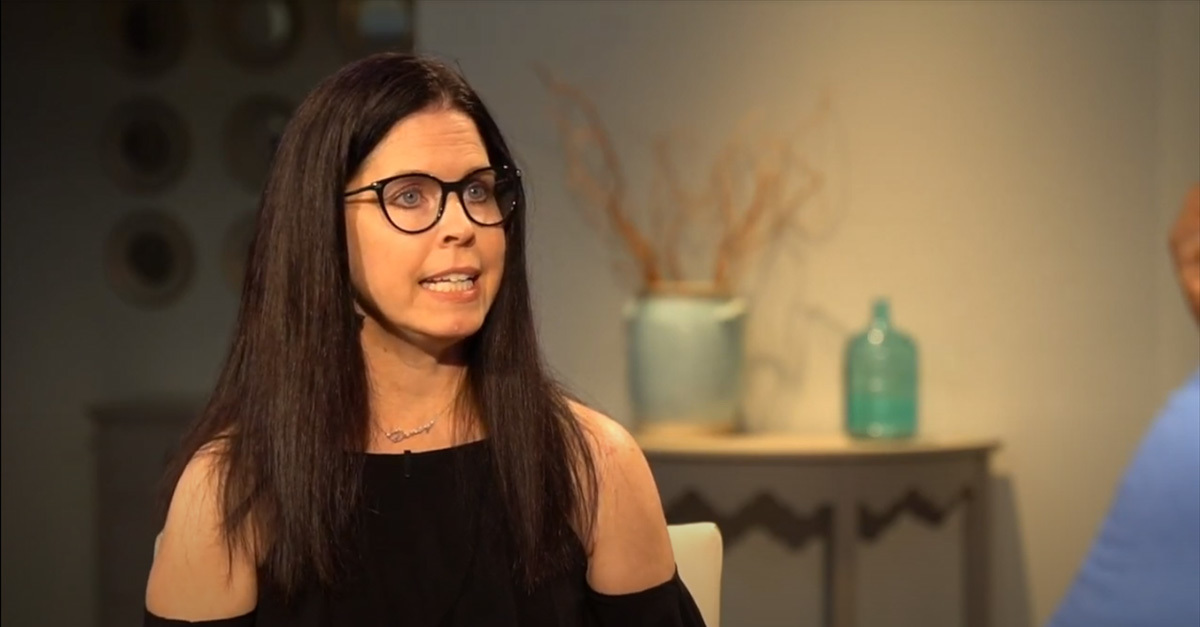By CP
MARIETTA, Georgia — As Diane McDaniel prepared for a sit-down interview to share her story of suffering a health complication she and her family never expected, she did so in the comfort of her longtime church home at Eastside Baptist Church, where her husband, Tim McDaniel, serves as the recreation and senior adult pastor.
McDaniel said at first, she would’ve rather been diagnosed with something people can understand, like cancer or kidney disease, not a mental illness. Despite the fears and trepidation of what lay ahead, McDaniel and her family decided not to hide but to openly face their challenges and be candid with those around them.
In the interest of full disclosure, this reporter once served as the middle school pastor at Eastside Baptist Church and has been friends with the McDaniels for two decades. Yet, Diane McDaniel’s struggles and journey with bipolar disorder were unknown by this reporter until she went public.
She has shared more details in her new book, Journals from a Broken Mind, recounting her battle with mental illness, including suicide attempts, hospitalizations, interventions and recovery.
The mother of three said she wanted to share her story with as many people as possible and isn’t afraid to open up about her battles with mental health if it means just one person can relate to her experiences and be helped.
In an exclusive interview with The Christian Post, McDaniel said her situation got “pretty serious.” In all, McDaniel and her family went through “five hospital stays, and then two residential stays throughout the journey.” During the process, McDaniel decided to document her experiences.
At first, McDaniel said she tried to conceal her internal ordeal from her church family and others around her. But she came to realize she needed to reveal the truth of her new reality to the congregation, despite concerns about how some might react.
“Christians don’t always accept mental illness as another, like a physical illness,” she lamented. “They see it as it’s sin in your life. … You don’t have enough faith. You’re not praying enough.”
Three years into her journey, McDaniel made a video to let everyone know she struggled with bipolar disorder.
“I feel like it is my job now to educate and to help others understand that mental illness is in the Church,” she added. “Christians do have mental illness; they do struggle. And God loves us through our journey like He does anybody else with any other physical illness.”
While McDaniel recognized that the stigma surrounding mental illness might affect how some people at church and within her friendship circle viewed her, what she came to discover was that she was accepted by them. That’s the reason why one of the primary goals of the book is to encourage others who are struggling to “seek out help.”
“You cannot do it on your own. It’s not something you can do on your own,” she stressed, emphasizing that professional help is essential.
Throughout the book, McDaniel reiterates that it often takes a community to help get a loved one through the mental health challenges they’re enduring, along with professional help and doctor-prescribed medication. McDaniel said it took four years for doctors to find the right combination of medications to help stabilize her moods.
Although her journey is ongoing, McDaniel made it clear that if it wasn’t for her faith and the community around her, she’s not sure where she’d be today.
“This is part of my life. It’s part of my journey and my struggle,” McDaniel proclaimed, optimistic that the journal entries she wrote during her darkest times will empower others who are suffering.







